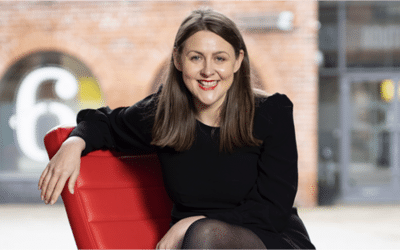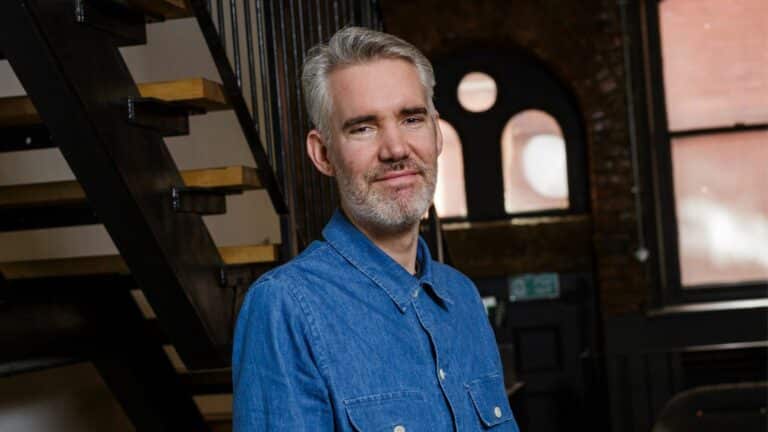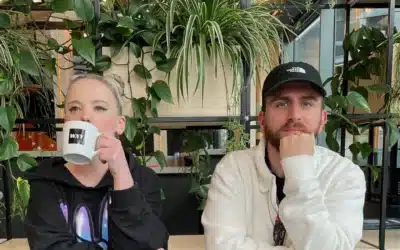Darren Scott is the chief founder of Manchester-based Truth and leads its creative team managing, enhancing and developing its creative offering.
Founded in 2006, the creative agency works with a range of clients including University Academy 92 (UA92), North East tech group Cybit and Sinclair Pharma.
For 27 years, Darren has worked with and developed some of the world’s most successful brands. An award-winning designer in his own right, Darren spent 11 years working for large global agencies such as McCann and JWT, where he developed his strategic approach to problem solving and design.
He shared his career journey, tips and advice…
How did you first get into your industry?
Having graduated from Salford University in 1996 and turned down several job offers in London, I opened the yellow pages (pre-internet) and start calling (pre-email) as many agencies as possible. Agency 1 – Creative Lynx (now Havas) said call back. Agency 2 – 999 Design looked at my book and told me to go see Agency 3 – McCann-Erickson. I started a two week unpaid placement the next day.
Six months later, and still unpaid, I was offered a paid position as Junior Designer on £7k. I remained there for 10 years working with some of the biggest global brands and rose to the role of Head of Typography.
What do you love about your job?
Everything. The main thing is every day is different. I am lucky enough to work with inspirational people and amazing business’ and I love to see how the design and design thinking we apply accelerates their growth.
Who – or what – has inspired you in your career?
My main motivation was being told as a child by my family that people from my background don’t go to University or get to choose a career. I have spent everyday since determined to prove them wrong. I now understand that YOU decide if you’re good enough, and you get out, what you put in. If you want it, chase it and never give up. Always have heroes and dream big.
What are the biggest challenges about your job?
Honestly, running any business can be challenging, but my wife (also Truth Managing Director) is responsible for most of that, and we a successful because of it. This gives me space to focus on design which is also challenging, but in a good way. People always ask if working with my wife is challenging, but honestly, I wouldn’t do it with anyone else.
What skills have been the most crucial to you succeeding in your career so far?
Aside from design, I would say knowing when to listen, but more importantly knowing when to challenge in order to make great thing happen. I never accept a no without at least one why, change only happens because someone wasn’t prepared to accept the current situation as final. I am not afraid to be wrong if it there is a chance I might be right.
What was your first salary and what could someone getting into the industry expect to earn nowadays?
I started on £7k in 1996 which even then was nothing, but at the time I would have happily have worked for free because I was learning so much. I think the first rung on the ladder is the most important as it lays the foundation for your career. View your first year in industry as a transition from education to work, you want to aim high and take whatever they offer to get a foot on the ladder and to make the first name on your CV a great one.
As a chef would you rather spend your first year and beyond earning 20k at McDonald’s or learning your craft under Gordon Ramsey on peanuts for 12 months. Think of it as an investment in your future. Always know your own worth, but experience is priceless, so play the long game. The goal is to get a foot in the door and make yourself indispensable at the best place and keep working hard. The best advice I was ever given was ‘Focus on being great and the money will come to you’.
What education or training would be most useful for someone looking to follow your career path?
Design is a tricky one, it is one of those skills that if you are good enough you could succeed with no formal training, many have. I would aim for a degree as you will learn the principles and the basic skills required, hopefully. I would always be prepared to do extra work to accelerate your learning and build your skillset and portfolio content.
With design though competence and a good attitude will beat a piece of paper every time. But, learn it until you earn it, never fake it until you make it.
What advice would you have for someone looking to follow your path?
Learn your craft and work harder than everyone else. Be humble, but believe in yourself and know your worth. Turn up and don’t give up.











